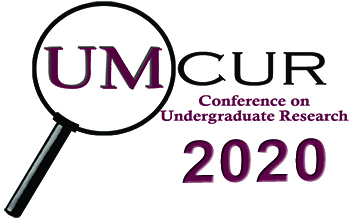Project Type
Poster
Faculty Mentor’s Full Name
Ashley Bourque Meaux, PhD, CCC-SLP, Ashley.meaux@umontana.edu
Faculty Mentor’s Department
School of Speech, Language, Hearing and Occupational Sciences, College of Health Professions & Biomedical Sciences Institution: University of Montana, 32 Campus Drive, Missoula MT, 59801
Abstract / Artist's Statement
Early access and exposure to literacy promotes language development and is essential to future academic success. When caregivers and toddlers engage in shared storybook reading, children are exposed to a variety of language experiences. One way to provide a rich language-literacy experience is to incorporate all essential layers of language (e.g. word meaning, sentence structure, principles of sound) simultaneously in a structured way to facilitate language and literacy acquisition. The focus of the Promoting Language Literacy Acquisition-Interaction in Youth (PLLAY) Lab is to identify ways to improve caregiver-child interactions to support early literacy experiences. We know that not only the number of words toddlers are exposed to, but also the types of words used by caregivers and the frequency toddlers interact with books matter in language and literacy acquisition. We also know caregiver-child shared storybook experiences have a substantial impact on language and literacy development for toddlers, which helps prepare them for entry into elementary school. Members of the PLLAY Lab will host a six-week caregiver training program to modeling interactive storybook reading with caregiver-child dyads. The aim of our training program is to provide and model known best practices in interactive shared storybook reading for caregivers using a multilinguistic structured literacy approach. Our poster will give the available results of the changes made in the types of words used and the frequency words were said by the caregiver-child dyad during interactive storybook reading following our training program. We will draw conclusions on the benefits of caregiver-child training on toddler’s language and literacy outcomes. These conclusions can inform future caregiver trainings using multilinguistic structured literacy approaches during shared storybook reading to increase language and literacy skills needed to support academic readiness.
Category
Social Sciences
Parent Storybook Reading Trainings and Their Effects on Early Literacy Acquisition
Early access and exposure to literacy promotes language development and is essential to future academic success. When caregivers and toddlers engage in shared storybook reading, children are exposed to a variety of language experiences. One way to provide a rich language-literacy experience is to incorporate all essential layers of language (e.g. word meaning, sentence structure, principles of sound) simultaneously in a structured way to facilitate language and literacy acquisition. The focus of the Promoting Language Literacy Acquisition-Interaction in Youth (PLLAY) Lab is to identify ways to improve caregiver-child interactions to support early literacy experiences. We know that not only the number of words toddlers are exposed to, but also the types of words used by caregivers and the frequency toddlers interact with books matter in language and literacy acquisition. We also know caregiver-child shared storybook experiences have a substantial impact on language and literacy development for toddlers, which helps prepare them for entry into elementary school. Members of the PLLAY Lab will host a six-week caregiver training program to modeling interactive storybook reading with caregiver-child dyads. The aim of our training program is to provide and model known best practices in interactive shared storybook reading for caregivers using a multilinguistic structured literacy approach. Our poster will give the available results of the changes made in the types of words used and the frequency words were said by the caregiver-child dyad during interactive storybook reading following our training program. We will draw conclusions on the benefits of caregiver-child training on toddler’s language and literacy outcomes. These conclusions can inform future caregiver trainings using multilinguistic structured literacy approaches during shared storybook reading to increase language and literacy skills needed to support academic readiness.
